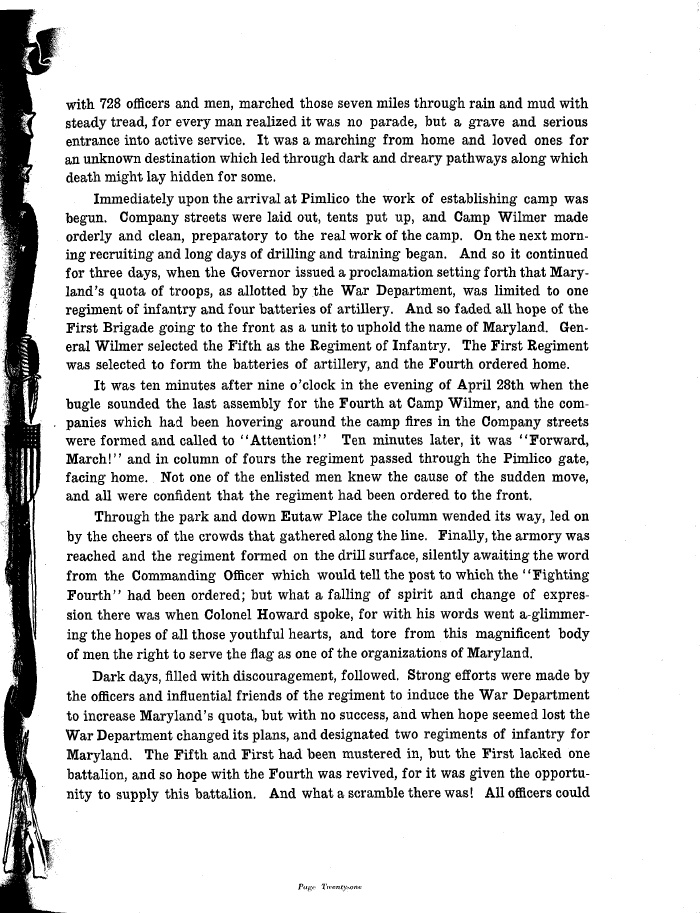 |
||||
 |
||||
| with 728 officers and men, marched those seven miles through rain and mud with steady tread, for every man realized it was no parade, but a grave and serious entrance into active service. It was a marching from home and loved ones for an unknown destination which led through dark and dreary pathways along which death might lay hidden for some. Immediately upon the arrival at Pimlico the work of establishing camp was begun. Company streets were laid out, tents put up, and Camp Wilmer made orderly and clean, preparatory to the real work of the camp. On the next morning recruiting and long days of drilling and training began. And so it continued for three days, when the Governor issued a proclamation setting forth that Maryland's quota of troops, as allotted by the War Department, was limited to one regiment of infantry and four batteries of artillery. And so faded all hope of the First Brigade going to the front as a unit to uphold the name of Maryland. General Wilmer selected the Fifth as the Regiment of Infantry. The First Regiment was selected to form the batteries of artillery, and the Fourth ordered home. It was ten minutes after nine o'clock in the evening of April 28th when the bugle sounded the last assembly for the Fourth at Camp Wilmer, and the companies which had been hovering around the camp fires in the Company streets were formed and called to "Attention!" Ten minutes later, it was "Forward, March!" and in column of fours the regiment passed through the Pimlico gate, facing home. Not one of the enlisted men knew the cause of the sudden move, and all were confident that the regiment had been ordered to the front. Through the park and down Eutaw Place the column wended its way, led on by the cheers of the crowds that gathered along the line. Finally, the armory was reached and the regiment formed on the drill surface, silently awaiting the word from the Commanding Officer which would tell the post to which the "Fighting Fourth" had been ordered; but what a falling of spirit and change of expression there was when Colonel Howard spoke, for with his words went a-glimmer-ing the hopes of all those youthful hearts, and tore from this magnificent body of men the right to serve the flag as one of the organizations of Maryland. Dark days, filled with discouragement, followed. Strong efforts were made by the officers and influential friends of the regiment to induce the War Department to increase Maryland's quota, but with no success, and when hope seemed lost the War Department changed its plans, and designated two regiments of infantry for Maryland. The Fifth and First had been mustered in, but the First lacked one battalion, and so hope with the Fourth was revived, for it was given the opportunity to supply this battalion. And what a scramble there was! All officers could Pugf Tu'enty,-.Qne |